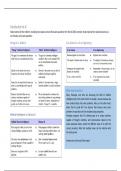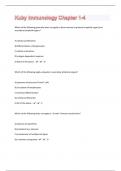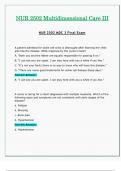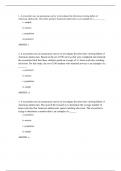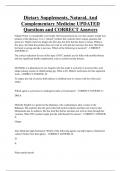Tentamen (uitwerkingen)
Introduction to AI (premaster Data Science & Society) study material and exam questions
- Instelling
- Tilburg University (UVT)
Study material for the midterm, including mock exams and real final exam questions from the fall 2023 semester. Study material from practical exercises is not included, only exam questions.
[Meer zien]
